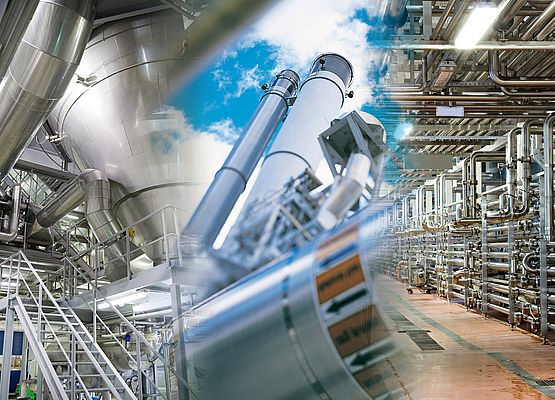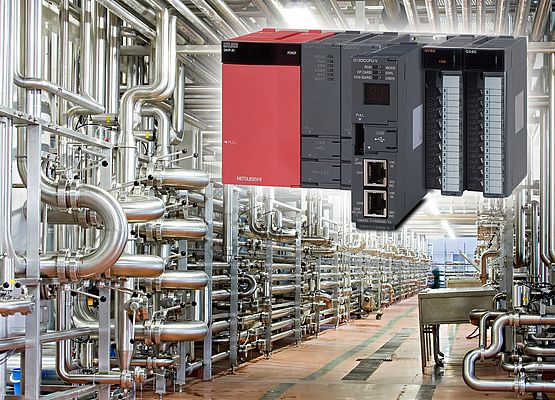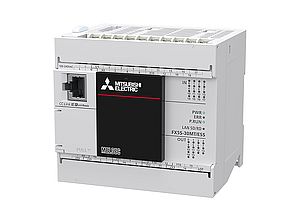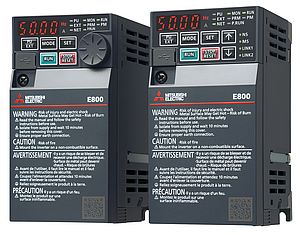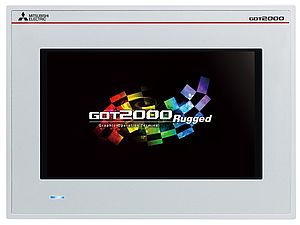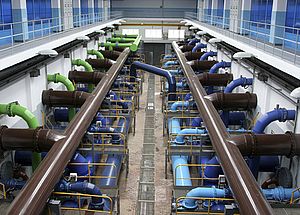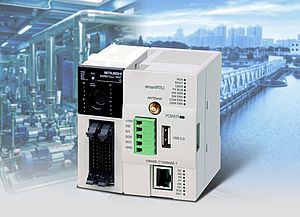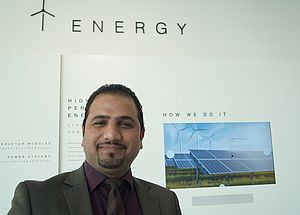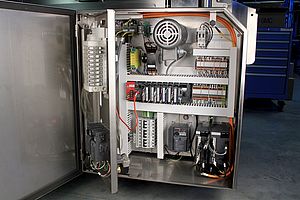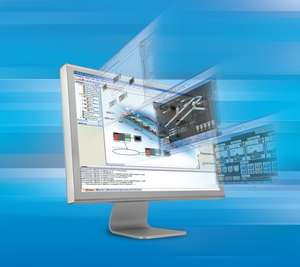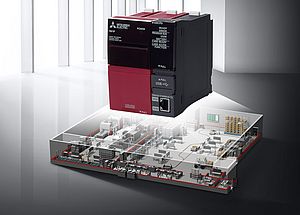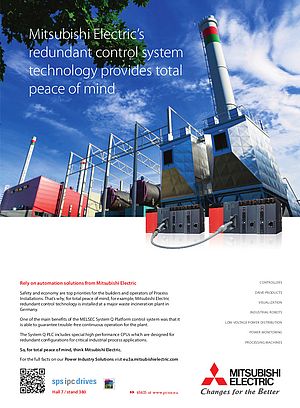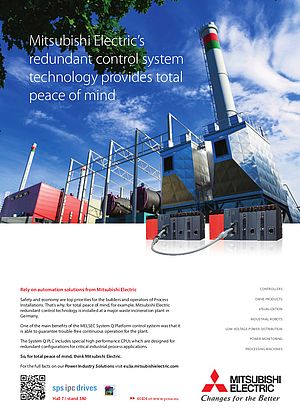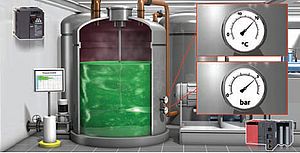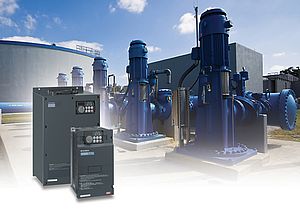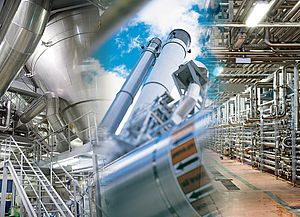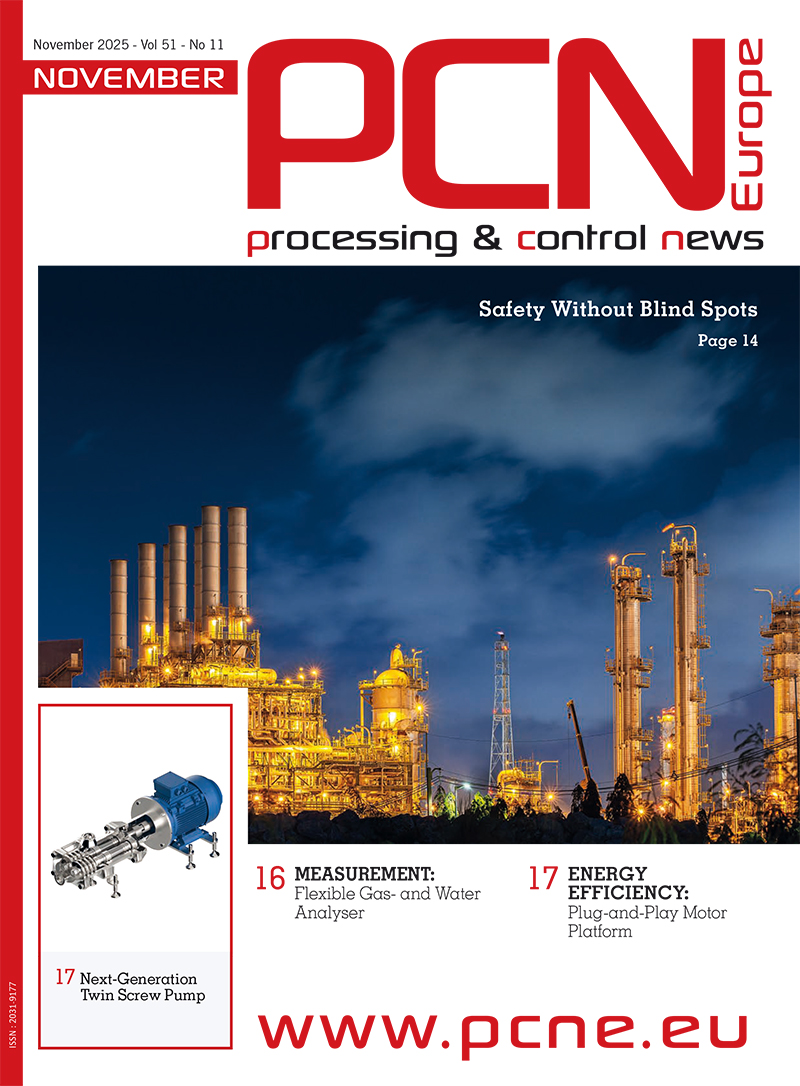The automation of production in the process industry is continually increasing. In order to fulfill the growing requirements of modern process control, companies are seeking options to improve the flexibility, quality, efficiency and productivity of their production.
Trends in the process industry
The process industry intends to increase production efficiency still further through a maximum degree of optimisation. The basis for this is a rapid, problem free exchange of real time information from field level to company level and vice versa, based on high company-wide integration. Only in this way can production processes be adjusted flexibly to the changing requirements of an ever faster paced society and plant processes undergo corresponding continuous optimisation. Real Time Optimization (RTO) allows software supported measuring data analysis, based on the company's set targets, and thus a maximising of productivity with minimal unit and energy costs through the associated process control system. Dynamic process planning is also adjusted flexibly to changing requirements and capacities, including automatic production allocation. With Advanced Process Control (APC) the process variables can be set separately from one another, leading to higher quality results.
Company wide integration depends on comprehensive automation of the whole business and production process. For the chemical industry, this development means, for example, that factories are increasingly fulfilling various tasks and will be configurable to the market in a flexible manner.
Heat and energy solutions will be fully integrated. In the energy industry "clean" electrical power is becoming a precondition for licensing. A reliable energy supply can be assured through increasingly extensive networking within intelligent electrical power networks (smart grids). Electricity and heat production by means of small format systems (smart power generation) is becoming increasingly widespread. Industrial countries are aiming for "green" production. For example, biomass will gradually replace fossil fuels in the cement industry.
Integrated energy management
Realistically, it must be assumed that energy costs will continue to rise over the long term. The causes are manifold and range from growing international demand, through higher costs in the production of fossil fuel based energy, to higher production costs of regenerative energy. Energy management therefore already plays an essential role in production and process planning today. An integrated overall approach to energy management is becoming ever more important. Comprehensive information from production as a whole must be collected, stored and evaluated for this purpose. Only in this way can energy consumption be calculated accurately through to the individual plant components, and optimised in the system as a whole. Ultimately the efficiency of the entire system can be increased taking account of productivity and costs.
System life cycle management to optimise processes
System life cycle management will also play an important role in process optimisation in the future, and will become increasingly comprehensive. An integrated solution for documentation management with diagnostics and maintenance tools which minimise development time and costs is helpful here.
The Mitsubishi Adroit Process Suite (MAPS), developed in cooperation with e-F@ctory Alliance Partner Adroit Technologies, provides preconfigured and tested engineering libraries with controller function blocks and associated SCADA graphics, from which integrated systems can be created and which can be used to visualise process control data. With a system life cycle management via the fully integrated SCADA PAC solution, all production stages (from planning, through construction and programming to maintenance ) and process systems can be precisely followed up and controlled.
Protection from attacks from cyberspace
The fact that users are frequently completely unaware of gaps in security was made clear in 2006 by NESEC Gesellschaft für angewandte Netzwerksicherheit mbH in a study entitled "Hacking SCADA/SAS Systems", showing that many companies wrongly assume that their SCADA systems are not connected to the Internet and are therefore safe.
Mitsubishi Electric is working on developing new security standards. Consideration is also being given to very basic gaps in security such as unprotected connections to the Internet. Cyber criminality is developing into a danger which should be taken ever more seriously, and which is assuming sometimes unimagined dimensions. Corresponding protective measures which support systematic IT security and minimise the area open to attack for viruses, worms and Trojans are indispensable.
On the way to company-wide integration
Potentially insecure and maintenance intensive gateway systems are eliminated by direct, rapid communication. This exchange of compliance relevant information between field level and ERP system is made possible by solutions such as MES-IT, C Connector, C Batch or RTUs from Mitsubishi Electric. General compliance, namely the observance of the company's internal specifications and regulations as well as legal and contractual ones, in particular in the IT area, makes an essential contribution to data and production security and product quality, and for this, in all process production environments, all relevant parameters, events and actions must be constantly measured, processed promptly and passed on to higher system levels.
A solution for the control of batch processes in real time is the batch control system, C Batch from Mitsubishi Electric and INEA, a partner of e-F@ctory Alliance. As an easy to integrate, rapid and cost-effective batch management solution, it reduces the complexity of traditional process control architectures considerably. The batch system is not PC based, either, but is based on a standard control platform. The flexible system can execute several recipes in parallel, and the recipe parameters are precisely scaleable to requirements.
Globalisation of production with smart RTUs
The growing shortage of raw materials is leading to the increasingly frequent need to extract them from remote places in the world. Innovative solutions allow centralised remote control of the entire, fully automated production process, so that the use of employees locally can be reduced to a minimum.
With smart remote terminal units (smart RTUs), Mitsubishi Electric is developing intelligent remote operating terminals which feed data into the company system over large distances from widely branching plant systems such as pipelines, switching stations or sewerage treatment plants. GPRS, EDGE, Ethernet, PLC (Power Line Carrier) or radio modems, for example, can be used for data transfer.
The future: Production Integrated Enterprise
Nowadays production and company levels are frequently separated from one another. By 2020 a fully automatic circuit of data exchange, analysis and measures derived from these will have become the standard – a model complete with integrated company levels, with the objective of disclosing the optimisation potential and using it in the best possible way. If new production specifications from research and development are filed in the ERP, they are integrated directly into the process control system. The batch management system recognises the changes and plans new batches accordingly. The entire production process reporting is adjusted to the new products.
In view of major market dynamics, production must be as adaptable as possible. Whole plants will be adjusted to requirements with ever greater flexibility through strong integration, made possibly by a high degree of automation. In the course of further increasing globalisation, a central system life cycle management will assure the consistency of business processes, product quality and productivity worldwide. For this, the works layout is transferred locally from central development, while an automated real time data transfer from the ERP / MES systems into production at the factory concerned and back will be indispensable for efficient, adaptable production and as far as possible without a gateway PC needing costly, time consuming maintenance and with its associated risks.
By Thomas Lantermann, Senior Business Development Manager, Mitsubishi Electric Europe.



